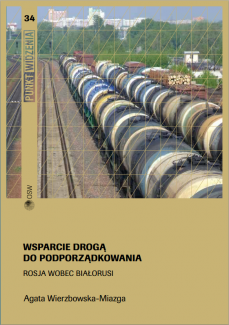Support as a means of subordination. Russia's policy on Belarus

Despite the conflicts and frictions in their bilateral relations, Russia has for years regularly invested in Belarus. Moscow’s support has become an important factor allowing the Belarusian economic model to continue, which in turn helps maintain the stability of the Belarusian political system. Russia's continued readiness to offer assistance to its neighbour reflects the importance Moscow attaches to Belarus.Belarus also features prominently in Moscow’s current policy objectives – especially with regard to the expansion of the Customs Union. The implementation of this project is seen as crucial in Russia, particularly in relation to Ukraine. For this reason, since 2011 we have been witnessing a rise in Russian aid for Belarus. In 2012, the support intensified and moved beyond purely financial help to include political assistance also.
Russia’s support, however, has come at a price. Moscow’s long-term goal is to establish control over the Belarusian economy, which would also, in effect, allow the Kremlin to influence the way other areas of the Belarusian state are governed. As Minsk’s dependence on Russian support deepens, Alexander Lukashenko will ultimately have no choice but to gradually accede to Russia’s demands.
Agata Wierzbowska-Miazga – analyst at the Centre for Eastern Studies, Warsaw, Poland, since 2000; expert on Belarus until 2009; currently a member of the Department for Russia, specialising in Russia’s policy on the CIS.




